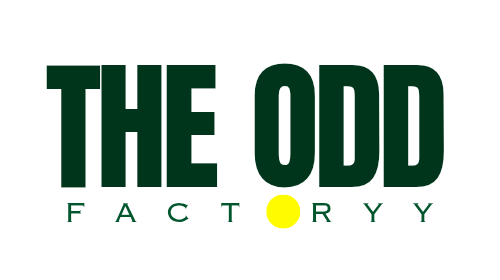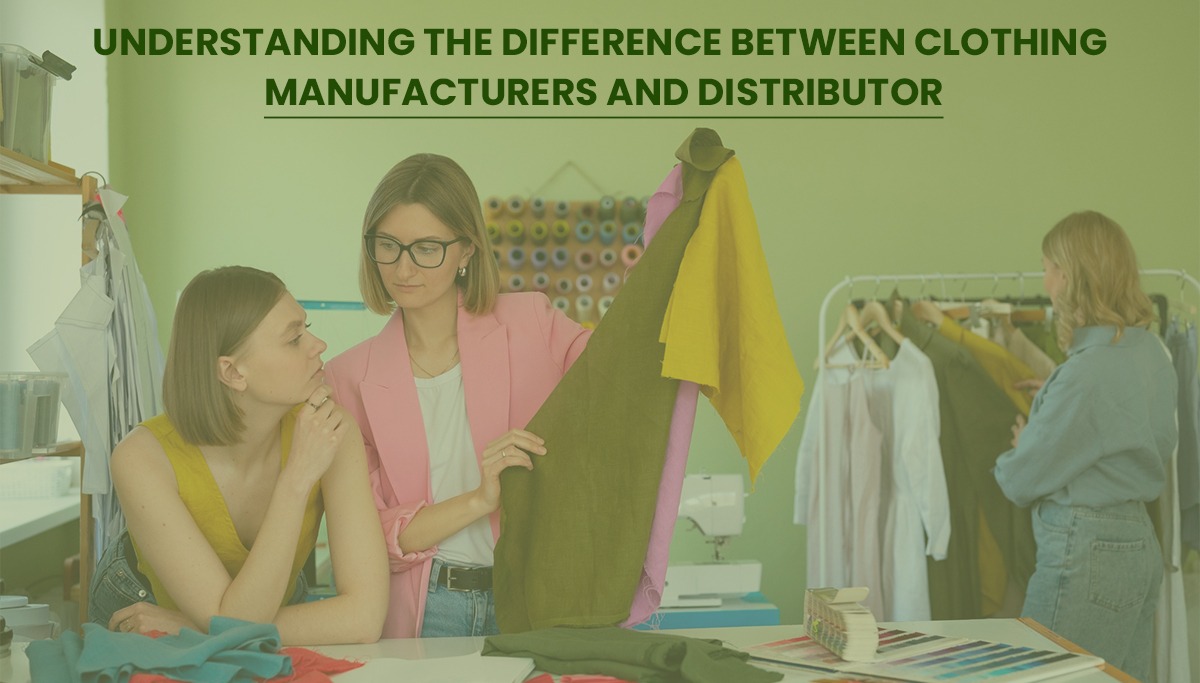When starting a fashion brand or scaling an existing one, understanding the roles of clothing manufacturers and distributors is crucial. These two entities play distinct yet interconnected roles in the fashion supply chain, each contributing to the process of getting your products from the design stage to the customer’s hands. However, depending on your business model, you might need one more than the other—or both. Let’s delve into the key differences between clothing manufacturers and distributors and help you determine which one suits your business needs
What is a Clothing Manufacturer?
A clothing manufacturer is a company or entity that produces garments. Their primary role is to convert raw materials into finished products. Here’s what you need to know about them:
Key Responsibilities:
- Production: Manufacturers handle the entire production process, from sourcing fabric and materials to sewing, cutting, and assembling garments. They work with design specifications to ensure that the final product meets the desired quality and design standards.
- Customization: Many manufacturers offer customization services, allowing fashion brands to produce unique clothing lines based on their specific needs and designs. This can include bespoke fabrics, custom patterns, and exclusive finishes.
- Quality Control: Manufacturers implement quality control measures to ensure that the garments are produced to the highest standards. This includes inspecting fabrics, checking stitching, and ensuring the final product aligns with the design.
- Scale: They can produce clothing on various scales, from small runs for boutique brands to large volumes for mass-market retailers.
- Production: Cutting, sewing, and assembling the garments. Depending on the size of the operation, this can range from small-batch production to large-scale manufacturing.
- Quality Control: Ensuring that the finished products meet the quality standards set by your brand.
Example:
If you’re starting a new clothing line, you would work with a manufacturer to bring your designs to life. They would handle everything from fabric selection to the final stitching of your garments.
What is a Clothing Distributor?
A clothing distributor, on the other hand, is responsible for getting the manufactured garments from the production facility to retailers and ultimately to consumers. Here’s a closer look at their role:
Key Responsibilities:
- Logistics and Shipping: Distributors manage the logistics of transporting clothing from manufacturers to various points of sale, including retail stores, e-commerce platforms, and wholesale buyers.
- Inventory Management: They handle inventory management, ensuring that there’s enough stock to meet demand while minimizing overstock. This involves warehousing, stock tracking, and replenishment.
- Sales and Marketing: Distributors often have established networks with retailers and can help promote and market clothing lines. They act as intermediaries between the manufacturer and the market, facilitating sales and negotiations.
- Order Fulfillment: They process orders, manage shipments, and handle returns, ensuring that retailers receive their products on time and in good condition.
- Wholesale Distribution: Buying products in bulk from manufacturers and selling them in smaller quantities to retailers.
Example:
Once your clothing line is produced, you would work with a distributor to get your products into stores or online shops. The distributor ensures that your garments are available to consumers and manages the logistics of getting them there.
Key Differences Between Manufacturers and Distributors
- Function: Manufacturers focus on producing clothing, while distributors manage the movement and sale of clothing.
- Involvement in Design: Manufacturers are involved in the production process and can offer input on design feasibility, while distributors typically do not influence design but focus on logistics and sales.
- Customer Interaction: Manufacturers deal directly with fashion brands and designers, while distributors interact primarily with retailers and consumers.
- Scope of Work: Manufacturers handle the creation of garments, while distributors handle the distribution, warehousing, and sales processes.
- Relationship with Retailers: Distributors have established relationships with retailers, which can be beneficial for new brands looking to enter the market. Manufacturers, on the other hand, typically focus on production and may not have direct ties to retail channels.
Clothing Manufacturer vs. Clothing Distributor: Which One Do You Need?
Choosing between a clothing manufacturer and a distributor depends on where you are in your fashion business journey and your specific needs.
When You Need a Clothing Manufacturer:
- Product Development: If you have a design concept and need to turn it into physical garments, you need a manufacturer. They will help you develop your clothing line from prototypes to final products.
- Customization Needs: If your clothing line requires special fabrics, custom patterns, or unique finishes, a manufacturer can provide these tailored services.
- Bulk Production: For larger production runs, manufacturers are equipped to handle high volumes and can scale production according to your needs.
When You Need a Clothing Distributor:
- Distribution and Logistics: If you already have finished products and need to get them to various retail locations or online platforms, a distributor will manage this process for you.
- Market Access: Distributors often have established relationships with retailers and e-commerce platforms, which can help your clothing line gain market access and visibility.
- Inventory Management: If managing stock levels, warehousing, and order fulfillment is not within your expertise, a distributor can handle these logistics effectively.
Choosing the Right Partner for Your Business
The decision between working with a manufacturer, a distributor, or both depends on your business model, scale, and goals. If you’re a designer or brand owner with unique designs, partnering with a manufacturer will allow you to bring your creative vision to life with greater control over the process. On the other hand, if your primary goal is to expand market reach and get your products in front of more customers, a distributor can help you achieve that without the complexities of managing production.



